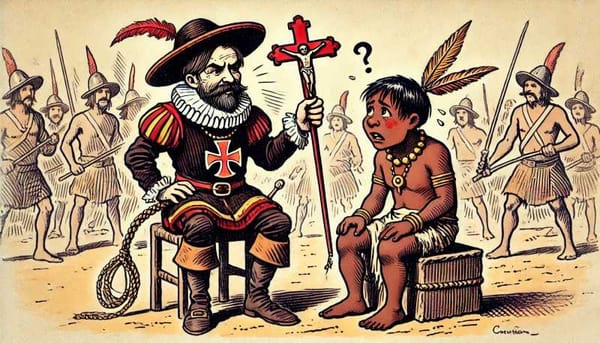The Murky Politics of Preserving Indigenous Languages in Mexico
Is merging Mexico's Indigenous Languages Institute the answer to saving dying languages? A heated debate erupts in the Chamber of Deputies, highlighting efforts to revitalize indigenous tongues and the challenges of achieving true equality for Afro-Mexican communities.

The halls of Mexico's Commission of Indigenous and Afro-Mexican Peoples buzzed with a peculiar energy recently. At the center of the storm? The fate of the National Institute of Indigenous Languages (INALI). Lawmakers, like characters in a character-driven TV show, clashed over its proposed merger – a seemingly innocuous bureaucratic shuffle that unraveled into a microcosm of Mexico's struggle to honor its indigenous heritage.
Representative Irma Juan Carlos, the head of the commission, played the role of the conflicted protagonist. Initially applauding the government's plan to streamline bureaucracies, she raised an eyebrow at the new twist: merging INALI with the Ministry of Culture. It was a curious choice, considering the National Institute of Indigenous Peoples (INPI) already existed, seemingly a more natural fit. Was this a stroke of genius, or a recipe for bureaucratic oblivion for INALI's crucial mission?
María Teresa Rosaura Ochoa Mejía, a rebel with a cause, wasn't buying it. Merging INALI into the Ministry of Culture, she argued, was akin to leaving a watchdog in charge of the sheepfold. INALI's specialized focus on languages, she asserted, risked being diluted by the Ministry's broader cultural mandate.
Meanwhile, Esther Martínez Romano, channeling the voice of the people, championed the INPI merger. Here, logic prevailed – why create a new bureaucracy when a perfectly suitable one already existed? It was a plea for efficiency, a yearning to streamline the fight for indigenous language preservation.
Eduardo Zarzosa Sánchez, the resident curmudgeon, wasn't impressed by any of the proposals. He lamented the lack of progress in rescuing these languages, arguing that bureaucratic musical chairs wouldn't solve the more profound issues. Funding, he pointed out, was the lifeblood of this fight, and stripping INALI of its autonomy smacked of diminishing its importance.
The drama wasn't confined to the INALI saga. As the commission wrapped up its activities, a bittersweet sentiment hung in the air. Representative Irma Juan Carlos acknowledged the progress made in tackling inequality, but conceded it was a marathon, not a sprint. Sayonara Vargas Rodríguez, the eternal optimist, remained hopeful for the future, urging continued support for indigenous and Afro-Mexican communities.
There were glimmers of unity amidst the discord. Pedro Sergio Peñaloza Pérez, a beacon of bipartisanship, praised the commission's ability to transcend party lines and recognize the Afro-Mexican population. Esther Martínez Romano, ever the pragmatist, emphasized the need for a dedicated budget to empower indigenous justice systems.
The curtain closed with a mix of achievement and a yearning for more. Saúl Hernández Hernández, the ever-determined one, vowed to continue the fight. Even Eduardo Zarzosa Sánchez, the resident skeptic, acknowledged the historical debt owed to indigenous communities. Blanca Carolina Pérez Gutiérrez, the voice of reason, highlighted the progress made and the work that lay ahead for the next legislature.
The future of INALI remains uncertain, a microcosm of Mexico's ongoing quest to reconcile its past with its present. Yet, amidst the political tempest, a truth resonates: the fight for indigenous languages is a fight for identity, a fight for a nation's soul. And in that fight, every voice, every perspective, plays a crucial role.




